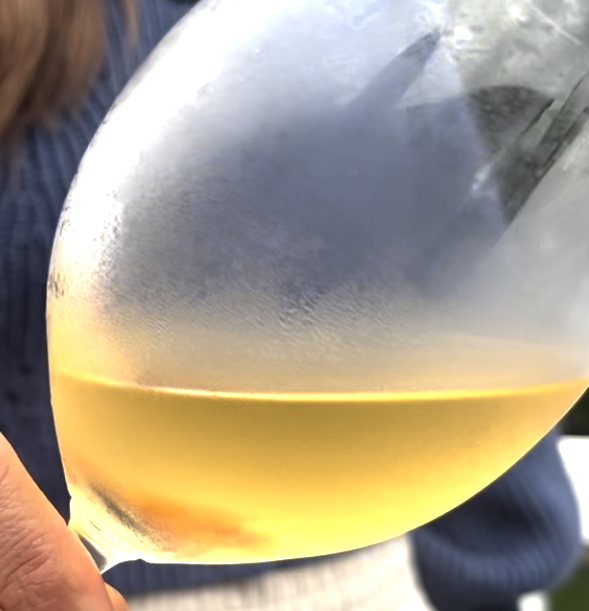Honest Wine: What Does Natural Mean?
Let’s talk about natural wine and my thoughts on the topic. On one end, you've got the purists who say, “Don’t you dare add a thing—funk is fine!” On the other end, there's the overly commercialized side, where it feels like someone made wine-flavored Kool-Aid, dumping additives to ensure every bottle tastes sweet and identical. So, what does "natural wine" really mean? Typically, it involves organic farming and no filtration — great! I appreciate the intentional farming techniques without pesticides and sprays. No filtration implies a more complex wine that hasn’t been stripped of flavor. You may have seen me post on social media or email about sediment ie ‘wine diamonds’ in the bottom of your glass. Fear not! Those guys are perfectly fine and do not affect the flavor of the wine. Natural wine also stands by using native yeasts (nothing commercial) and no added sulfites. Ok this is where things can get a little tricky. We are navigating down a road of potential bacteria and spoilage if we aren’t VERY careful.
My experience with natural wine…
About 10 years ago, my husband and I lived in Berkeley during a really exciting time in the wine world. People were starting to move away from the big, bold Napa Cabs and began seeking wines that felt more pure—more natural. This was the era of IPOB (In Pursuit of Balance), which celebrated wines with more fruit, acidity, and transparency. Natural wineries were springing up around downtown Berkeley and Oakland. Places like Broc Cellars were leading the charge, and who could resist checking out somewhere as quirky as Donkey and Goat? Naturally, we dove in. Some wines were amazing, while others had a bad, funky barnyard vibe that left you scratching your head.
It wasn’t until I took a work trip to Italy that things really clicked for me. I visited Marina Marcarino at Punset Winery in Piemonte, a place where natural winemaking is truly embraced. Marina took over the estate in the 1980s and transitioned the entire property to organic farming, following the principles of Fukuoka's "do-nothing" agriculture. The vineyard is green and alive, with minimal soil disruption, fully integrated into nature.
When I told her about the garage-style natural wineries back home, I asked if she thought “natural” was always the best way. She paused and smirked, clearly ready to tread carefully. She explained that she’s incredibly fortunate to have everything on site, giving her complete control over the winemaking process, free from outside interference. She touched on something crucial—wild bacteria and yeast are everywhere in the winemaking process. Controlling the environment is key to avoiding spoilage, and that’s much harder to do if you're trucking grapes a hundred miles to a warehouse. Suddenly, the offputting funky flavors I encountered at some of these urban wineries made a lot more sense.
Adding a touch of sulfites to stabilize a wine and prevent spoilage isn’t always a bad thing. And sometimes, native yeasts simply don’t do the job. Not everyone has generations of history on a family estate with no neighbors and the ability to control everything from grape growing to winemaking in the same location. I love it when I see wineries promoting minimal intervention. All around it feels like a more realistic way of consuming honest wines from around the world; as opposed to an always and everywhere 100% natural philosophy. Patrick Cappiello, one of the U.S.’s most well-known sommelier-turned-winemakers, recently admitted that some of his 100% natural wines went bad, making him rethink his approach. His takeaway? It’s about what’s in the glass and making stable wine that tastes great. Patrick now prides himself on making wine naturally, but doesn’t box himself into the rigidness of being a "natural winemaker." While he prioritizes many of the philosophical elements of natural winemaking, occasionally he has to do a few minor things to ensure the quality remains intact over time.
Sometimes I enjoy a wine produced “naturally”, and my tolerance for interesting notes on wine is probably a bit higher than most. My taste buds have been trained for years to differentiate between good and bad funk, after all ;) This year, for our anniversary, my husband and I shared a fantastic Cabernet Franc from the Loire Valley, and we loved it. We even joked about it having that "good funk." A few family friends stopped by, and we poured them a taste, but it wasn’t for them. At the end of the day, wine is always subjective. That’s what makes the journey and exploration so much fun, isn’t it?

